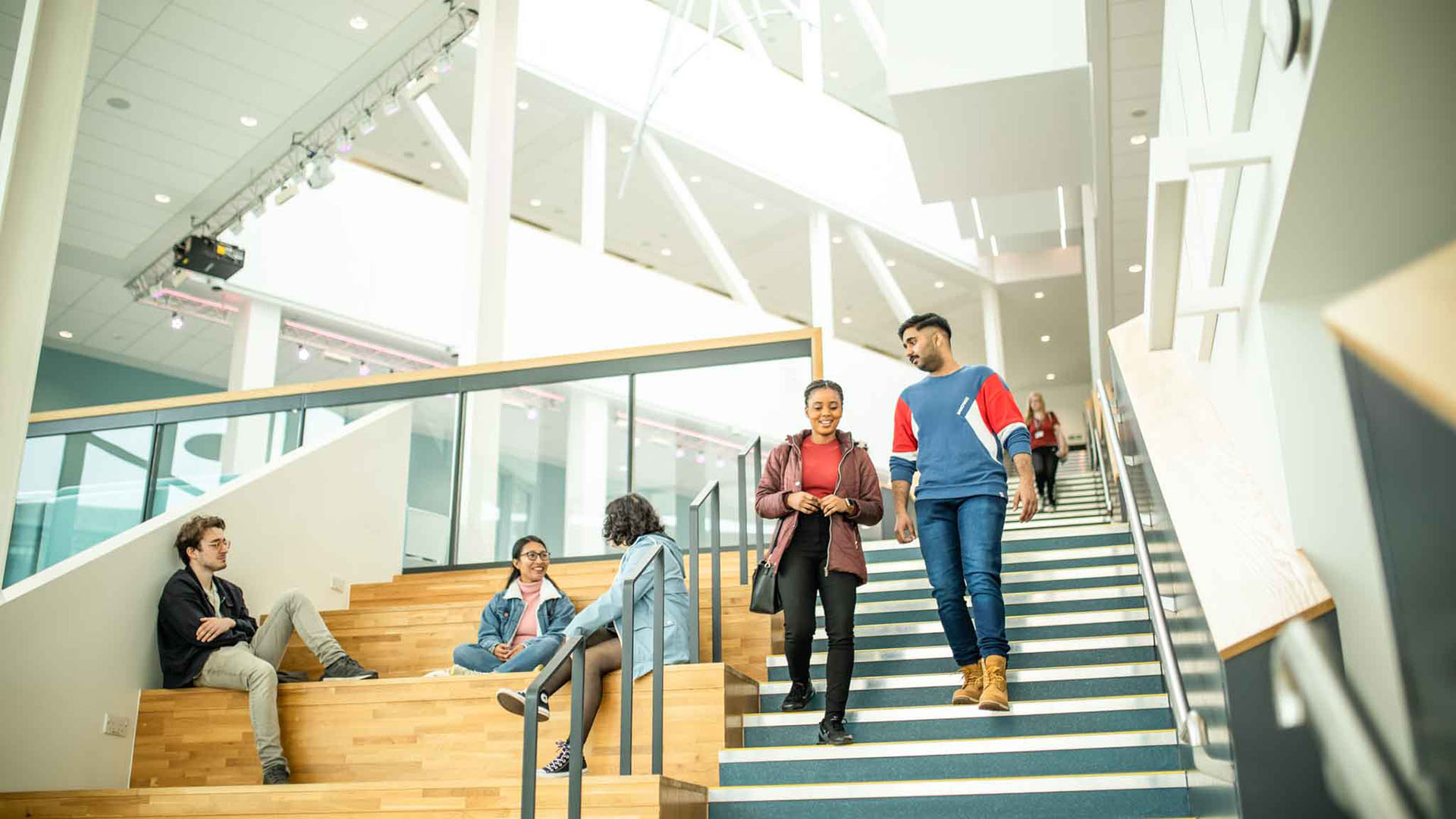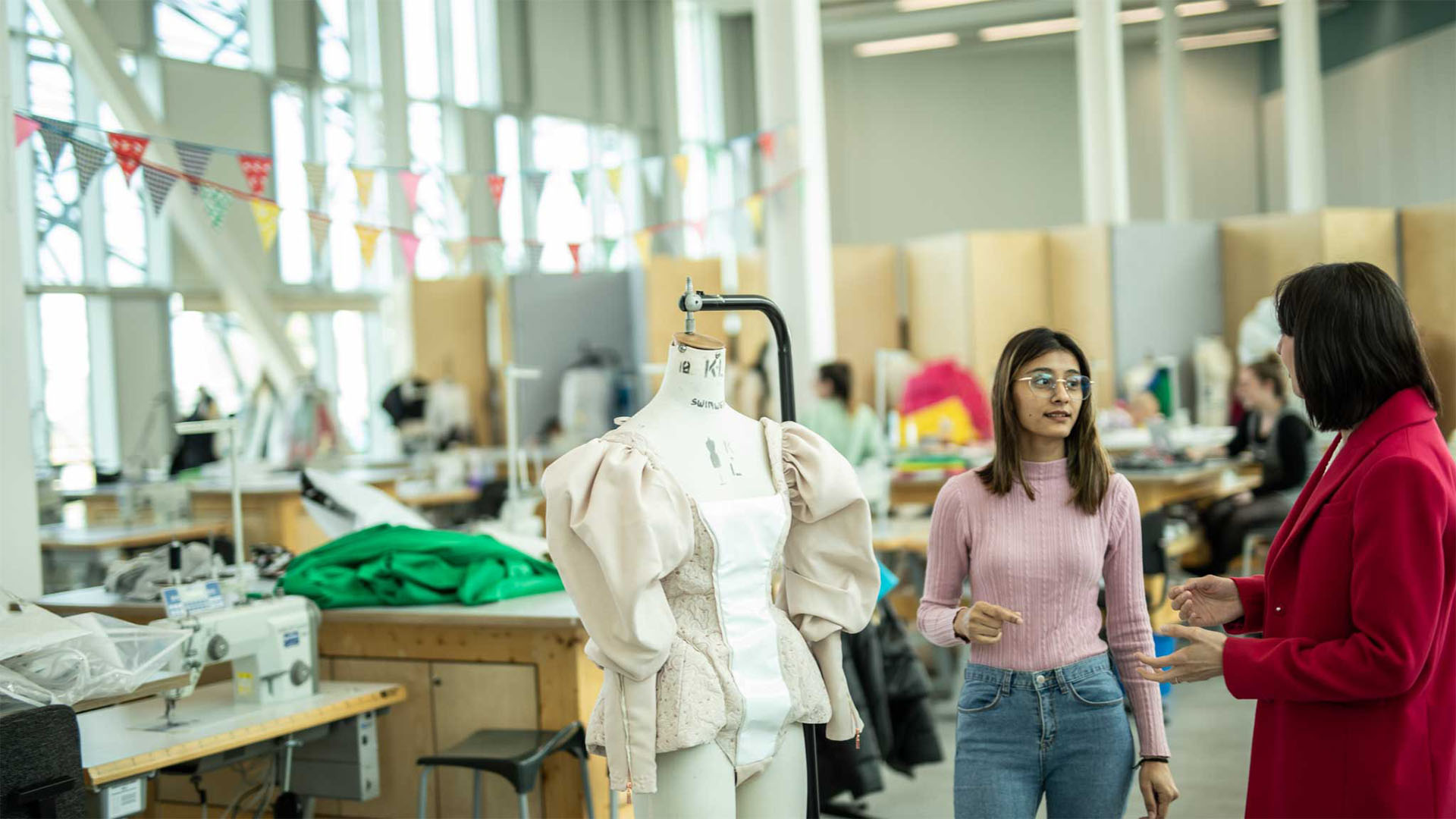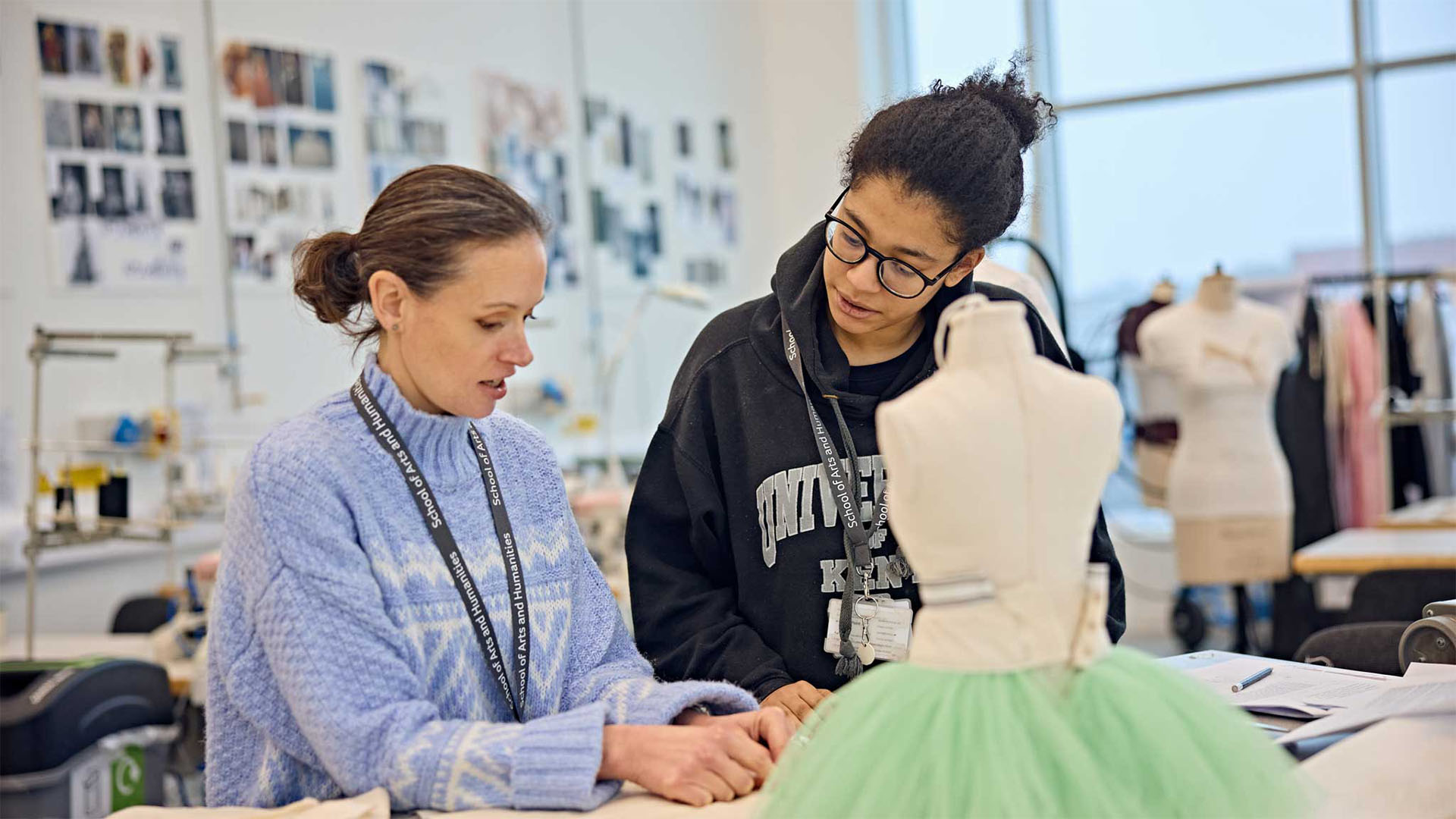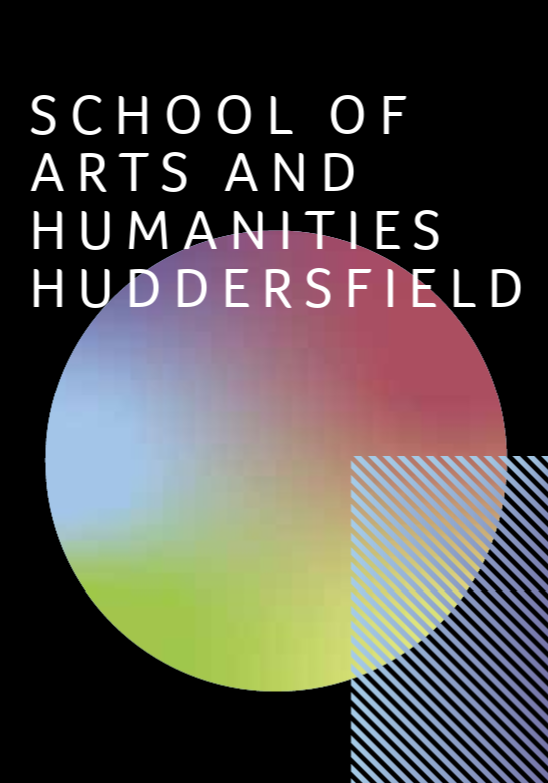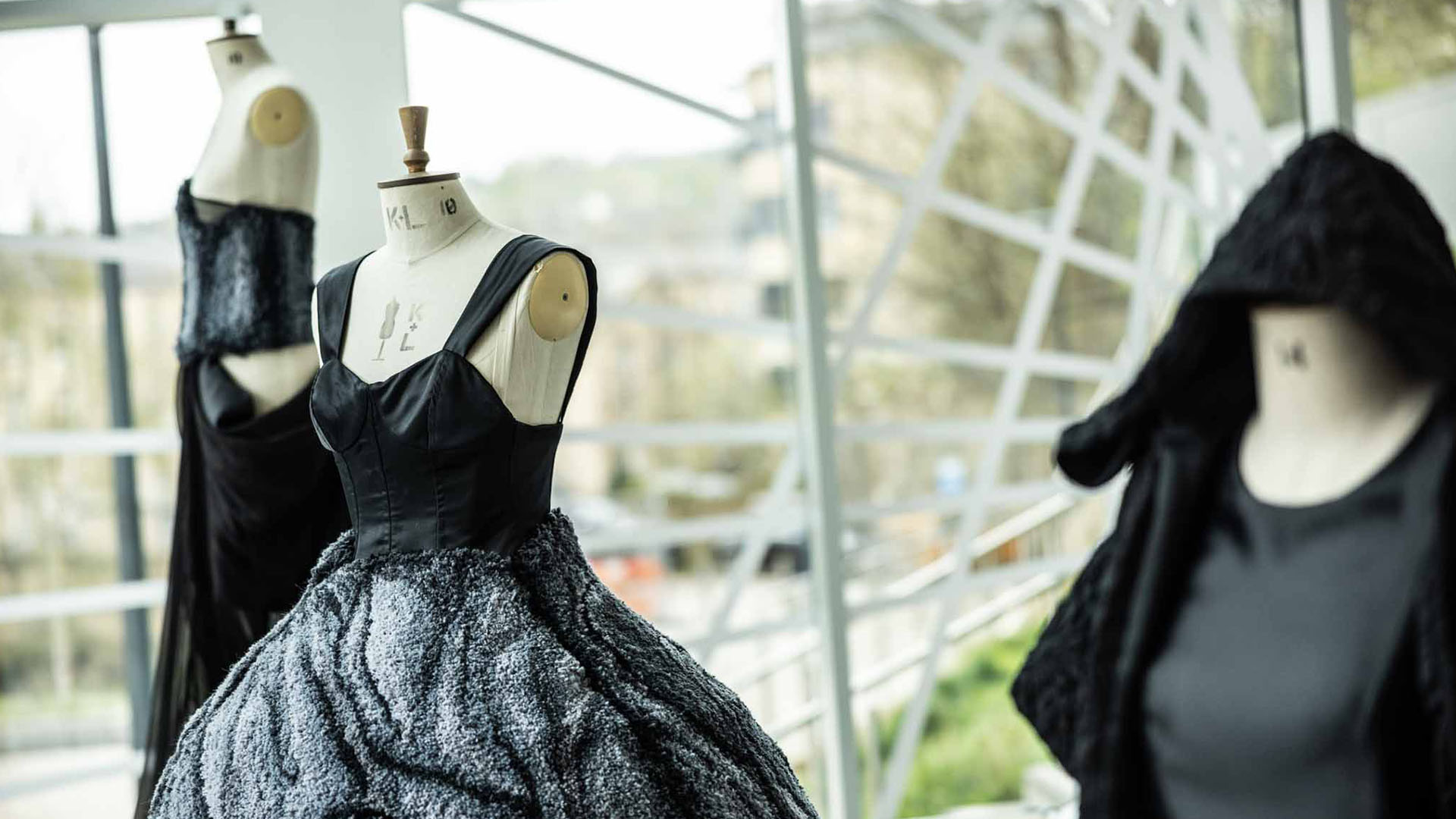
Fashion Design MA
Start Dates
21 September 2026
Duration
1 year full-time
Overview
Why choose Huddersfield for this course?
- Design with purpose - explore sustainability, identity and innovation in an environment that encourages you to create fashion that matters.
- Experiment boldly - work hands-on in professional studios and workshops that support traditional craftsmanship and digital innovation side by side.
- Be seen - share your work through exhibitions, cross-disciplinary showcases and collaborations that connect you with real audiences.
The Fashion Design MA is part of the School of Art and Humanities MA Art & Design Suite, an innovative approach to postgraduate taught education that brings together disciplines from across art and design to produce a collaborative programme of courses that foreground the shared practices, processes and values of art and design in the 21st century.
Our course is designed to develop creative problem solving and innovative fashion design skills, incorporating sustainable approaches and considering new technologies.
The course encourages research and discussion of new methods and experimental techniques in fashion design, to develop practical and analytical skills. The course aims to support the development of imaginative approaches to problem solving within the technical and design sector of the fashion industry.
The aim of this course is to enable you to:
-
Critically appraise the importance of social, technological and cultural dimensions of garment construction as applied to your personal practice and that of others.
-
Evidence advanced knowledge and understanding of the complete fashion design cycle, from concept to garment including its emerging and future trends.
-
Systematically plan, negotiate, and implement a coherent body of work underpinned by advanced practice and research in fashion design.
-
Contribute to the principles and processes inherent in design to extend the life of clothing.
-
Evidence awareness and relevance of your practice in relation to professional standards in pattern cutting and garment construction.
Practical modules are run by staff who are practicing designers with expertise in fashion design. You will acquire strong 2D and 3D technical skills required to establish your career or advance your current practice. Students are encouraged to engage with other departments within the University, such as 3D printing, laser cutting, textile print, embroidery and weave. This course is suited to applicants who wish to develop a future career within the industry or who wish to advance their existing skills in this area.
Entry Requirements
Entry requirements for this course are normally:
- An Honours degree (2:2 or above) in a relevant subject or an equivalent professional qualification.
- Alternative qualifications and/or significant experience may be accepted, subject to approval.
- International students with qualifications in 'creative' or 'practice' subjects should submit a digital portfolio (pdf) of work with their application.
- All suitably qualified applicants are normally invited in for an informal chat with a portfolio or considered for admittance under alternative arrangements.
If your first language is not English, you will need to meet the minimum requirements of an English Language qualification. The minimum for IELTS is 6.0 overall with no element lower than 5.5, or equivalent. Read more about the University’s entry requirements for students outside of the UK on our International Entry Requirements page.
Course Details
Teaching and Assessment
Discover what to expect from your tutor contact time, assessment methods, and feedback process.
Your Career
MA students studying within the Department of Fashion and Textiles have gone on to be successful within the following roles: Trend Researcher at Trend Bible, Textile Design and Development Consultant at Thorpe Hodgson, Apprentice Developer at FOOTASYLUM, Creative Pattern Cutter at Hugo Boss, Visual Associate at Gap, and freelance design practice.*
*Source: LinkedIn
98%
Percentage of the University's postgraduate students go on to work and/or further study within fifteen months of graduating.
* HESA Graduate Outcomes 2022/23, UK domiciled.
£62 billion
The number of jobs supported by the UK fashion & textile industry
* UK Fashion & Textile Association (UKFT)
£38.5k
The average salary of our postgraduates fifteen months after graduating.
* HESA Graduate Outcomes 2022/23, mean salary, UK domiciled, full-time UK employment as main activity.
Fees and Finance
This information is for Home students applying to study at the University of Huddersfield in the academic year 2026/27.
Please note that tuition fees for subsequent years may rise in line with inflation (RPI-X) and/or Government policy.
From January 2027 the UK government is launching a new student funding system for people starting university education. Read more about the Lifelong Learning Entitlement (LLE).
For detailed information please visit https://www.hud.ac.uk/study/fees/
This information is for international students applying to study at the University of Huddersfield in the academic year 2026/27.
Please note that tuition fees for subsequent years may rise in line with inflation (RPI-X) and/or Government policy.
For detailed information please visit https://www.hud.ac.uk/international/fees-and-funding/
Field Trips:
Field trips are usually organised and executed in conjunction with specific modules to experience relevant cultural events and/or exhibitions. Tutors will explain the designated destinations and the procedure for travel. Students are also encouraged to visit museums, galleries, exhibitions, fashion design practices and studios. The estimated cost of this is £100 depending on the exhibition/studio you chose to visit.
Materials:
You will need to cover the cost of some printing of your work for presentation during the course. You will also need to supply your own materials for some aspects of your studies, which may include sketchbooks, general art materials, and some specialist materials and tools for the Major Project. The approximate cost of material items is estimated at around £500. Costs may vary based on the materials you choose and the approximate costs are given as a guide only.
Scholarships and Bursaries
Discover what additional help you may be eligible for to support your University studies.
Tuition Fee Loans
Find out more about tuition fee loans available to eligible postgraduate students.
What’s included in your fee?
We want you to understand exactly what your fees will cover and what additional costs you may need to budget for when you decide to become a student with us.
If you have any questions about Fees and Finance, please email the Student Finance Team.
Gallery
See below for a glimpse at some of our facilities
Explore More
Why Hud
Explore the unique opportunities and resources that make our institution a top choice for students seeking a well-rounded and future-focused education.
More Info
Careers support
We know you’re coming to university to study on your chosen subject, meet new people and broaden your horizons. However, we also help you to focus on life after you have graduated to ensure that your hard work pays off and you achieve your ambition.
Find out more about careers supportStudent support
At the University of Huddersfield, you’ll find support networks and services to help you get ahead in your studies and social life. Whether you study at undergraduate or postgraduate level, you’ll soon discover that you’re never far away from our dedicated staff and resources to help you to navigate through your personal student journey.
See our support servicesTeaching Excellence
Great teaching is engaging and inspiring — it helps you reach your full potential and prepares you for the future. We don’t just teach well — we excel — and we have the awards and recognition to prove it.
Find out moreInspiring Academics
Our researchers carry out world-leading work that makes a real difference to people’s lives. Staff within the Department of Design and Architecture may teach you on this course.
Find out more about our staffResearch Excellence
You’ll be taught by staff who want to support your learning and share the latest knowledge and research.
Find out moreAccommodation
Looking for student accommodation? Huddersfield has you covered. HudLets has a variety of accommodation types to choose from, no matter what your preference. HudLets is the University’s approved accommodation service, run by Huddersfield Students’ Union.
Take a look at your optionsFurther Study
Many of our graduates stay at Huddersfield to complete postgraduate research degrees at Masters or PhD level.
Discover research degreesLegal information
When you enrol as a student of the University, your study and time with us will be governed by our terms and conditions, Handbook of Regulations and associated policies. It is important that you familiarise yourself with these as you will be asked to agree to them when you join us as a student. You will find a guide to the key terms here, along with the Student Protection Plan.
Although we always try and ensure we deliver our courses as described, sometimes we may have to make changes for the following reasons:
Changes to a course you have applied for but are not yet enrolled on
If we propose to make a major change to a course that you are holding an offer for, then we will tell you as soon as possible so that you can decide whether to withdraw your application prior to enrolment. We may occasionally have to withdraw a course you have applied for or combine your programme with another programme if we consider this reasonably necessary to ensure a good student experience, for example if there are not enough applicants. Where this is the case we will notify you as soon as reasonably possible and if you are unhappy with the change we will discuss with you other suitable courses we can transfer your application to. If you do not wish to transfer to another course with us, you may cancel your application and we will refund you any deposits or fees you have paid to us.
Changes to your course after you enrol as a student
Changes to option modules
Where your course allows you to choose modules from a range of options, we will review these each year and change them to reflect the expertise of our staff, current trends in research and as a result of student feedback or demand for certain modules. We will always ensure that you have an equivalent range of options to that advertised for the course. We will let you know in good time the options available for you to choose for the following year.
Major changes
We will only make major changes to non-optional modules on a course if it is necessary for us to do so and provided such changes are reasonable. A major change is a change that substantially changes the outcomes, or a significant part of your course, such as the nature of the award or a substantial change to module content, teaching days (part time provision), type of delivery or assessment of the core curriculum. For example, it may be necessary to make a major change to reflect changes in the law or the requirements of the University’s regulators or a commissioning or accrediting body. We may also make changes to improve the course in response to student, examiners’ or other course evaluators’ feedback or to ensure you are being taught current best practice. Major changes may also be necessary because of circumstances outside our reasonable control, such as a key member of staff being unable to teach due to illness, where they have a particular specialism that can’t be adequately covered by other members of staff; or due to pandemics, other disasters (such as fire, flood or war) or changes made by the government.
Major changes would usually be made with effect from the next academic year, but may happen sooner in an emergency. We will notify you as soon as possible should we need to make a major change and will consult with affected groups of students and any changes would only be made in accordance with our regulations. If you reasonably believe that the proposed change will cause you detriment or hardship we will, if appropriate, work with you to try to reduce the adverse effect on you or find an appropriate solution. Where an appropriate solution cannot be found and you let us know before the change takes effect you can cancel your registration and withdraw from the University without liability to the University for any additional tuition fees. We will provide reasonable support to assist you with transferring to another university if you wish to do so and you may be eligible for an exit award depending on how far through your course you are.
In exceptional circumstances, we may, for reasons outside of our control, be forced to discontinue or suspend your course. Where this is the case, a formal exit strategy will be followed in accordance with the student protection plan.
The Office for Students (OfS) is the principal regulator for the University.

